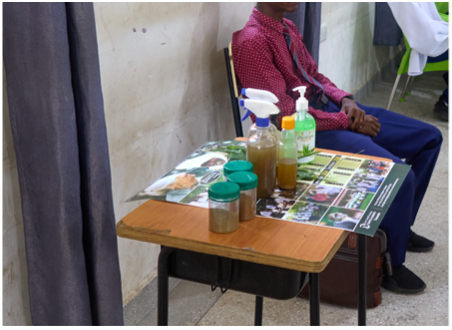In the beautiful archipelago of Zanzibar, a group of dedicated secondary school students is taking an innovative approach to a pressing public health issue: malaria. Through their vibrant club, these young advocates are not only raising awareness about malaria prevention but also empowering their peers and families through creative activities
During the Grand Challenges African Malaria Community field site visit, these students have harnessed the power of art and creativity on how they engage their community. By using songs and drama, they’re able to communicate important messages about malaria prevention in a way that resonates with their audience. Their performances are not just entertaining; they’re educational, sparking conversations about how to combat this mosquito-borne disease that poses a significant threat in many tropical regions.
The laughter and engagement from the audience highlighted the effectiveness of their approach—education doesn’t have to be dry or clinical; it can be fun and relatable.
 In addition to performances, the club has taken a hands-on approach to prevention by creating their own homemade mosquito repellent. This initiative not only promotes health and safety but also fosters a sense of entrepreneurship among the students. They sell their homemade repellents to friends and family, ensuring that effective preventive measures are accessible within their communities. This creative solution provides a barrier against malaria while also opening discussions about sustainable practices and self-reliance.
In addition to performances, the club has taken a hands-on approach to prevention by creating their own homemade mosquito repellent. This initiative not only promotes health and safety but also fosters a sense of entrepreneurship among the students. They sell their homemade repellents to friends and family, ensuring that effective preventive measures are accessible within their communities. This creative solution provides a barrier against malaria while also opening discussions about sustainable practices and self-reliance.
Apart from the engagement and awareness, these activities have cultivated leadership skills among the students, boosting their confidence and reinforcing their role as change-makers in their community. They are not just learning about public health; they are actively contributing to it. Investing in youth-led projects not only enriches their learning experience but also builds a healthier future for all. Together, we can harness the creativity and enthusiasm of young people to create lasting change in communities.
The work being done by these students in Zanzibar serves as a powerful reminder of the potential for youth engagement in public health. Researchers and public health advocates are encouraged to support similar school engagement activities. By collaborating with local schools, you can help amplify these initiatives, providing resources and guidance that empower students to take the lead in health education.

Please Sign in (or Register) to view further.